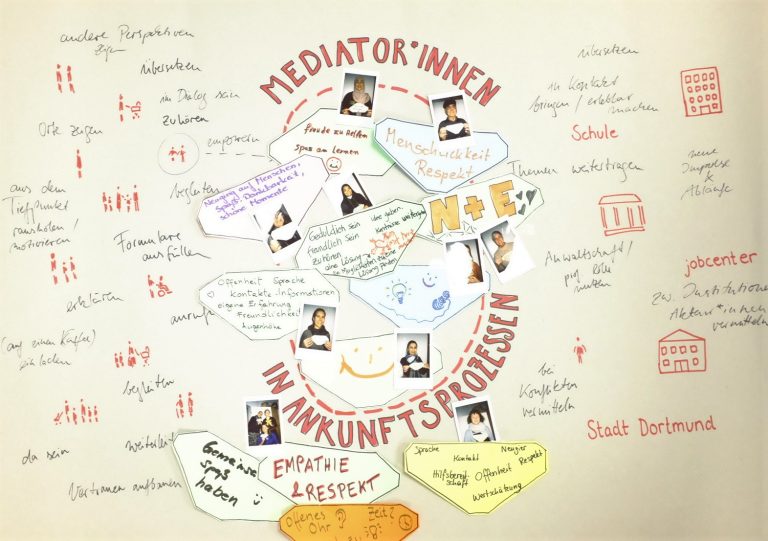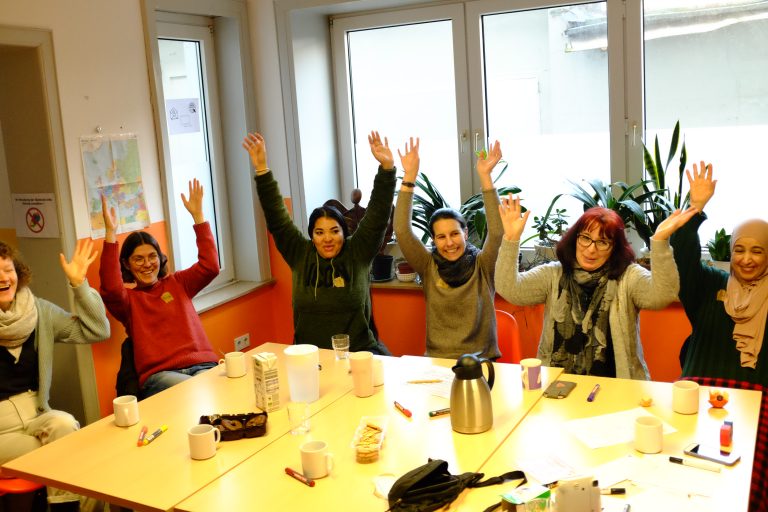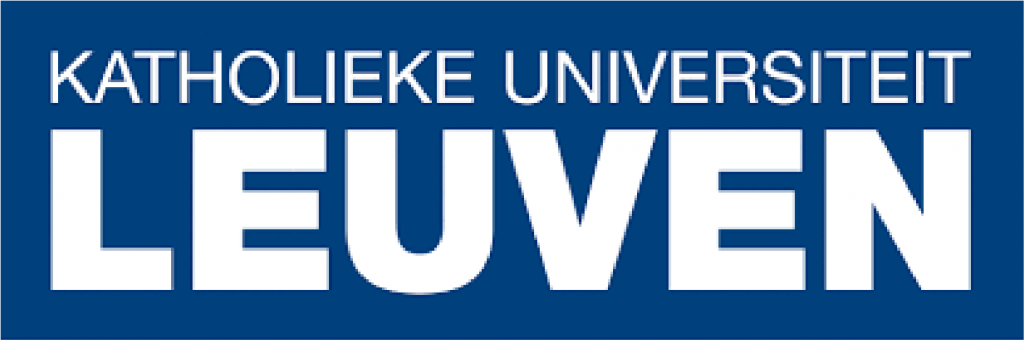Workshop on Mediators' Role in Arrival Processes


Mediators’ role in arrival processes – this was the topic of a two-hour workshop that our Dortmund team organised together with a colleague from the NGO Planerladen. It took place on Wednesday, 18 January 2023, in the Norstadt-based socio-educational centre Raum vor Ort that invited us to do this workshop. The aim was to create a space for exchange and reflection inspired by observations from the AIMEC research project.
The workshop gathered 12 people, who are active as full-time or voluntary mediators in Nordstadt and support newly arrived people in many different ways and in various areas of life. Mediators, also called brokers in scientific literature, relate newcomers with resources. They take a mediating (and central) role – not only for newcomers but also for institutions and organisations.
The participants exchanged views on their work and shared experiences: Why am I doing this work? What role do my own arrival experiences play? What encourages me in my work? What skills do I have or need for successful support? Where do I see challenges and problems? These and similar questions were the focus of the exchange. The participants reflected on their role with the help of a variety of methods: a chart was drawn up, super(wo)man skills were identified and photographed, and a list of pros and cons, as well as a wish list, were drawn up.
Many of the participants have own experiences with migrating to and arriving at a new place. One’s own arrival experiences inspire curiosity about the topic of arrival, as well as shaping the desire to support other people. Working as a mediator may bring joy and meaning, especially when changes and successes can be achieved both on an individual and also at institutional level. It often creates a sense of community among mediators – across social and cultural boundaries.
But there was also an exchange about challenges and their solutions. Mediation is often “outsourced” (and remains unpaid) – instead it should be integrated into institutions more frequently. All participants agreed on the need for structural changes such as simplified bureaucratic procedures and less stratified access to welfare services, but also for a serious confrontation with racism and discrimination on the part of all city residents. The focus should be on humanity, empathy and respect – for mediators’ work as well as for the entire city.
We were very pleased about the invitation and the exciting workshop that hopefully will be repeated in other organisational contexts. Within our research and transfer activities, we will definitely continue to better understand and highlight mediators’ role in arrival processes.






